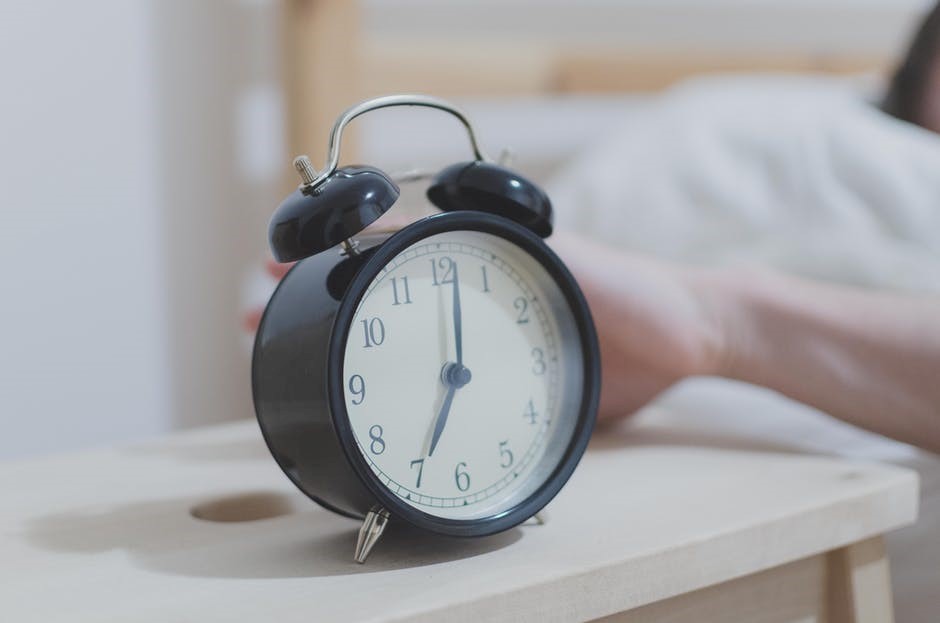Is this changing the clock really such a good idea?
On the night of March 24 to 25, the clock will be set back one hour and daylight saving time will start again. After that we will once again have to deal with the long summer evenings where the sun will not set for a long time. But is changing the time really good for our health? And what does it do to our sleep?
The influence on our well-being by the half-yearly resetting of the clock
Changing the time of day has negative consequences for the wellbeing of people. This is most applicable to the transition from winter to summer time, because of the hour of sleep we lose. In Scandinavia research has been done on this and in the long run health damage would occur because of the disruption of the biorhythm. It would increase the chance of cardiovascular diseases. Now we do not have to worry so much about it because the increased risk is and remains minimal.
Does the modern man still sleep enough?
The sleep quality of modern man is declining, this is very worrying because it is very important to get enough sleep. Sleep has a great impact on human health. During your sleep your body recovers and your brain comes to rest. When you sleep too little, your concentration is reduced and you are less able to absorb things. You can also get depressed earlier and you have a bigger chance to get health problems. So enough sleep is extremely important to stay healthy.
The causes of reduced sleep quality
There are many reasons why the quality of sleep in humans is declining. Work and travel times play a major role in this. You come home later from work and still want to do all kinds of things in the evening. The result of this is that we fall asleep less easily and sleep less deeply. Noise also plays a major role in the reduced quality of sleep. When you live in a busy city, you have a lot of noise around you which makes you sleep less deeply. Think also of people who work night shifts and therefore sleep during the day, they have to deal with much more noise than a normal person. To cut a long story short, it is therefore extremely important that we pay more attention to our sleep quality. If we don't, it will have problematic consequences for public health.
Tips for falling asleep faster
Eating certain foods can make you fall asleep easier. Think of red and orange products like tomatoes, sweet potatoes and carrots. But also coconut oil and calcium-rich foods such as dairy products and tofu. Animal products with a lot of fat, however, can make it harder to fall asleep.
Your early evening habits can also contribute to your sleep problems. Drinking caffeine within a few hours of going to sleep can keep you from falling asleep quickly. When you eat dessert, keep in mind that chocolate has the same effect. So like most things, everything in moderation.
If you want to burn some extra calories before sleeping through an exercise session, it's important to know that this can also lead to sleep problems. Therefore, try to build in a buffer of 4-8 hours to help you fall asleep more easily.
When you're getting ready for bed, try to avoid bright lights and food. Not doing so can affect your ability to fall asleep, so try to avoid it an hour before you go to sleep. Studies have shown that people who sleep in 80% humidity have more trouble falling asleep and sleep less deeply than those in 50% humidity.
Tips for enjoying a good night's sleep
- Your daily diet can affect your sleep. Eating tomatoes and oily fish helps you sleep longer. Lowering cholesterol, salt, and saturated fats also helps with this.
- Small adjustments during the day can also have a positive impact on your sleep. More sun exposure, less time spent watching TV and less alcohol consumption all have a positive impact on the quality of your sleep. So try sitting next to an open window while you work and spend the time you normally spend watching TV outside!
- When you want to go to sleep, make sure you have a routine. In fact, it turns out that people who have a bedtime routine sleep better than those who don't. What that routine entails also determines how you sleep. Try to filter out as much background noise as possible, for example by using earplugs, and keep the room as dark as possible.
- What also helps is to take a warm bath or shower before you go to bed. A warm body temperature will ensure a deeper sleep. If you prefer to shower in the morning, the same effect can be achieved by adding an extra blanket or warm pajamas. Aromatherapy also works very well. Studies show that lavender, geranium, mandarin and bergamot oils have a very positive effect on your sleep. A few drops on your chest or pillow is sufficient.
- Do you snore a lot or do you suffer from sleep apnea? Then try to sleep on your side. If you turn over a lot in your sleep, you can put a pillow in your back so you can lie more still. Research also shows that a room temperature of 16 degrees helps better for snoring people than for example 22 degrees.
How to remedy daytime fatigue
Of course, the main reason for a good night's sleep is to be well rested the next day. But if you're still having startup problems in the morning, try potassium-rich foods like potatoes, soybeans, pistachios and bananas.
The final tip to prevent daydreaming is to expose yourself to bright light in the morning and as little as possible in the evening. Avoiding blue light in the evening isn't always easy, but turning down your screen brightness after sunset goes a long way.



